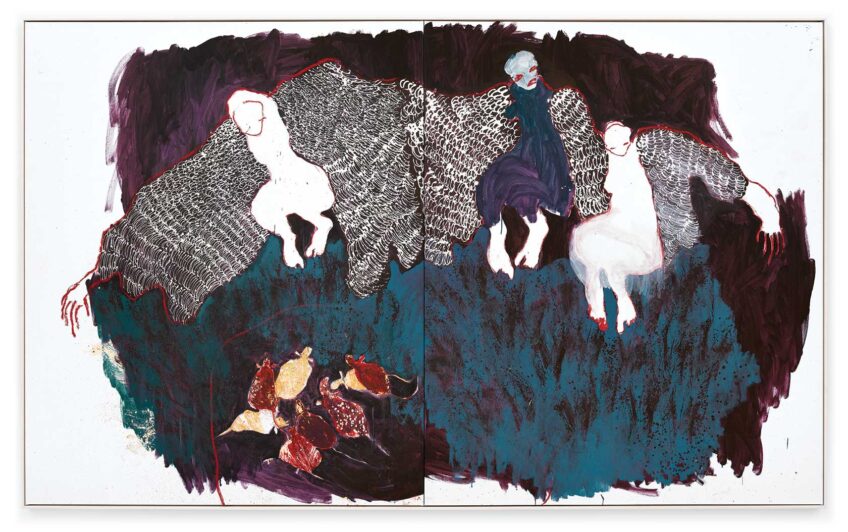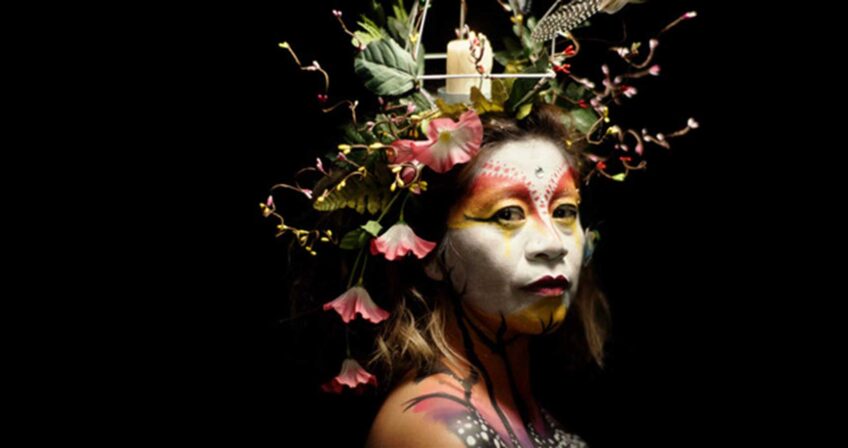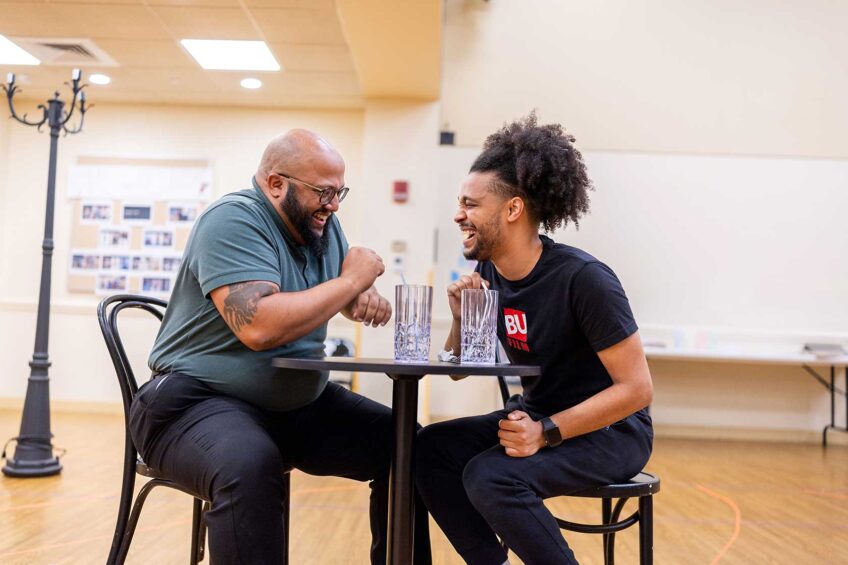Banner [Virtual] Art Gallery
James Perry in conversation with artist Susan Thompson
![Banner [Virtual] Art Gallery](https://baystatebanner.com/wp-content/uploads/2024/03/Susan-Thompson2-1024x1014.jpg)
View Banner Art Gallery
Banner [Virtual] Art Gallery
Sponsored by City of Boston | Mayor Michelle Wu
This is the 13th interview in a weekly series presenting highlights of conversations with leading Black visual artists in New England. In this week’s installment, artist James Perry talks to artist Susan Thompson. The interview has been condensed and edited for clarity.
Susan Thompson is a Boston-based textile, fiber and mixed-media artist who has exhibited widely in Massachusetts and other parts of the United States. She has also participated in cultural exchanges in Haiti, Cuba, China and Japan, and with Indigenous artists in Santa Fe, New Mexico. Her work reflects the diverse cultural influences she has encountered in her travels abroad and her own cultural heritage. Through textiles, Thompson creates intricate designs that tell stories about the struggle of her people.
James Perry: Susan, can you tell us a little bit about yourself — how you started?
Susan Thompson: I am married to William Thompson. He’s a retired professor who worked at Wheelock College. I have three children and 10 grandchildren. So, I’m so blessed to have a nice family.
How I got started with art was when I went to Hunter College in New York. My husband would always say, “You should take art. You should major in art.” But I was thinking, well, there’s no money in art, and it’s such a struggle. When we moved to Boston, I met Allan Rohan Crite, and through him, that’s how I got started, really being thrust out there into the art world.
I’ve seen Crite’s work and admired it. How did his work influence you?
We started collaborating. We were doing things like chasubles and stoles and wall hangings that were inspired by his drawings. So that’s how we got started. Funny thing, I don’t really draw that well. At least I didn’t at the time. I’m better now. [Crite] would say, “Oh, you broke the person’s arm,” because it wasn’t articulated realistically the way an arm would go. He just mentored me all the way.
Who was another artist who helped you along your journey?
There were so many. When I came into AAMARP — Dana Chandler invited me into AAMARP — I was with a group of the most amazing artists. Even now, when I walk out of my studio and down the hall, I take a detour around the gallery and look at every piece of work. Being in the midst of greatness makes you better.
Can you talk to us about the textures?
That’s one of the elements of art. It’s all of that, the textures, the colors. With textiles, it’s easy because you can sew things in. I got started with textiles seeing my grandmother in our home when I was little. She lived with us and took care of us while my parents worked, and her and her church friends would gather in our living room and have their sewing projects. My grandmother, when she had time, was always making these quilts. The funny thing about [them] is I could identify all these little cut-up pieces because they were my dad’s shirt, or one of my Sunday dresses that I outgrew.
I work with a lot of younger artists who are trying to figure out whether art is something worth pursuing. Is it worth it to create no matter what?
It’s worth it if you love it. I love art. I love looking at art and making art. I love being around artists. I like talking about art. So, if you like it, I think it just touches your soul and you must do it.
The thing about [being] creative is, eventually your creative piece kind of runs you down and grabs you.
It does, almost to the point of being obsessive. It’s fun. I think if it wasn’t fun, if it were a chore, I couldn’t do it. But I get so much pleasure and satisfaction out of the process. It makes me happy, and it feeds my soul.
What’s the most important thing that you want people to know about your art?
That quilting is a process that’s done by hand. It’s time consuming and often has a subtle message. A lot of my quilts deal with the theme of ancestors, because my parents, grandparents, aunts and uncles — a lot of people in my life — have gone to the land of the ancestors. This is my way of connecting to my ancestors, and I want them to like what I do.
How do you choose some of your colors?
I tend to like bright colors — bright, vibrant, almost primary colors. It’s also a mental thing with my mood. When my mother died, almost everything I made was brown, brown tones and very subtle.
View Banner Art Gallery










